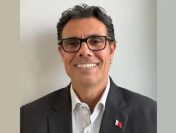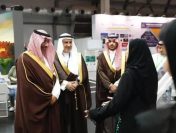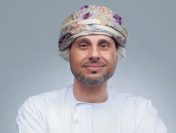While happiness scores are high and stress levels are low, there is still a noticeable trend of financial prudence among the residents of Saudi Arabia. Optimism about the future is high, largely rooted in the confidence in the government’s ability to address the macro-economic issues, but there is a deep sense that times are changing.
These are some of the initial findings OMD Arabia study ‘The Future of Saudi Arabia’, revealing the trends shaping Saudi society as the Kingdom embarks on an ambitious transformative journey. The study findings underscore a strong consensus that Vision 2030 will improve the lives of Saudis and that the Kingdom will undergo an immense change, including the growing role of entrepreneurs and women in the economy.
Be it with employment, education, female participation in the workforce and lifestyles, Saudis recognize that the future will bring a new reality. The benefits of economic diversification and chiefly job opportunities are expected to come at a price though as many fear rising costs with rents, property and education in the future. This translates into a subdued appetite for large investments such as cars or houses.
The role of technology as a source of entertainment, information and communication was underlined by the choice of cheaper internet access as the key driver for happiness, ahead of respect for traditions and regional safety. The survey has identified a strong appetite for more openness and self-expression.
“Saudi Arabia has been the expression of traditions for so long that stereotypes about the country are rife. What this study has revealed is how, in many ways, Saudis mirror their international counterparts’ aspirations for the future while remaining true to their roots. The study was conducted to more accurately assess and define the sentiments of residents, in order to help organizations adapt to this rapidly evolving economic landscape. Armed with these insights, businesses can now become even more relevant and meaningful in the way they approach the Saudi consumer,” commented Faisal Shams, Managing Director, OMD Arabia.
“The changes actually started in 2007 but have gained significant pace with Vision 2030. This study confirms that Saudis want to be passengers on the road of life and not mere bystanders. We must continue to track consumer sentiment throughout the transformation process, especially as the changes get bigger and bigger,” commented Khaled Al Maeena, Managing Partner of Quartz Communications and Former Editor-in-Chief of Arab News.
Mr Al Maeena was speaking at an event that OMD had organized in Dubai, during which the agency shared some of these findings with regional brands and business partners. Other presenters and panelists at the event included Nadim Samara, CEO of OMD UAE; Farah Moumneh, Head of Strategy at OMD UAE; Trevor McFarlane, Founder of EMIR; Halah Al Hamrani, Founder of Flagboxing; Abdellatif El Mardenly, Research & Strategy Director at PepsiCo and Rumana Sadekar, Senior Manager at Hall & Partners MENA.
The survey is part of an international series by OMD. Starting in Britain in 2013, the research project has been conducted in more than 20 countries, including the UAE in 2015. At the end of 2016, OMD Arabia commissioned Hall & Partners MENA to explore the changing consumer behavior and perceptions about the future in Saudi Arabia. With face-to-face interviews, focus groups and discussions with experts, the study delves into nationals and residents’ views on happiness, family, technology, the environment, national identity, financial and consumption priorities, health, work-life balance and employment. It identified the key themes of aspiration, responsibility, happiness and transformation.




